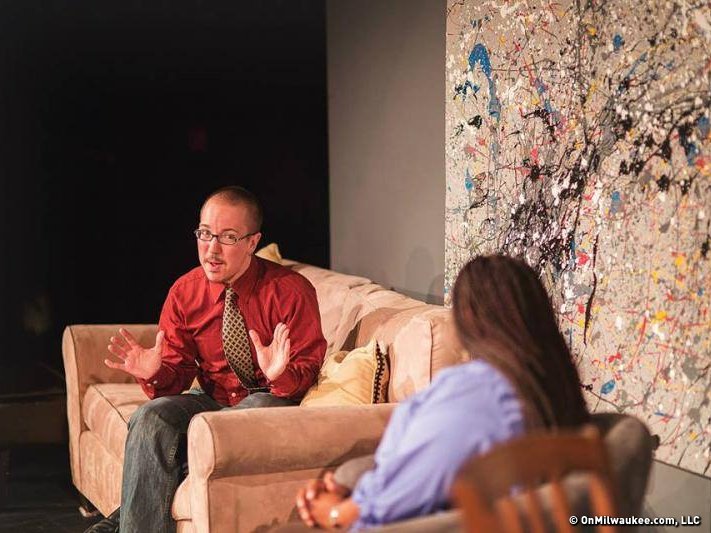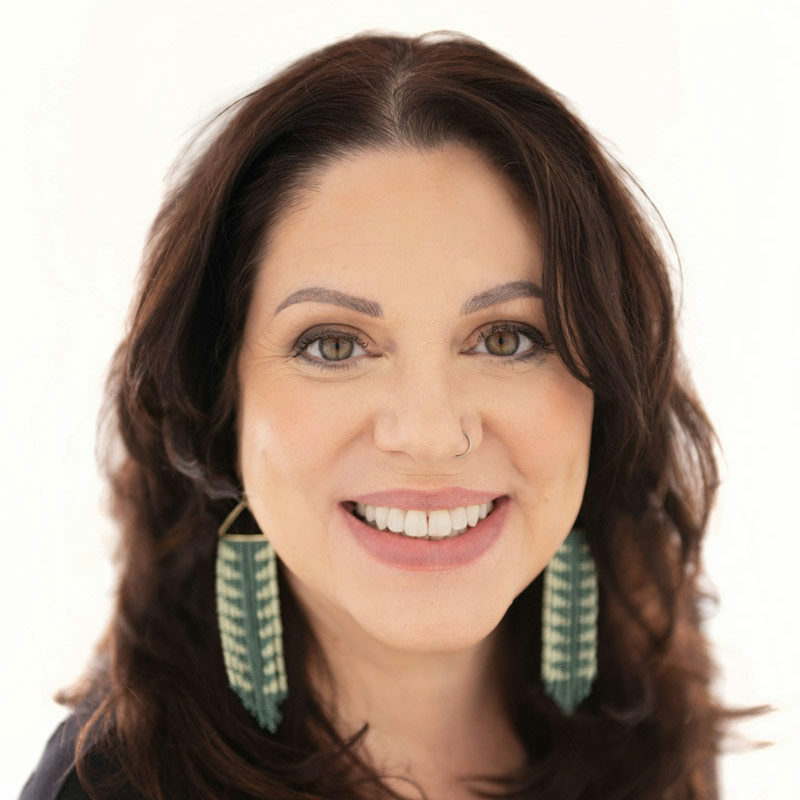The recent death of Ohio transgender teen Leelah Alcorn – who took her own life because her parents refused to support her as a female – and Bruce Jenner’s interview with Diane Sawyer on Friday during which he spoke openly about transitioning into a woman brought more light to those whose self-identity does not conform to conventional notions of male or female gender.
However, the media attention given to these two events does not begin to depict the reality for transgender individuals that often includes judgement, hatred, stereotypes and discrimination.
michael munson (who prefers his name to be spelled in all lowercase letters) is the co-founder and executive director of the Forge, a Milwaukee-based organization focused on improving the lives of transgender individuals and their allies. According to munson, it is believed that 1 percent of the population is transgender and therefore, with 5,758,000 people living in Wisconsin, 57, 580 are trans. The City of Milwaukee's population is 599,164 which suggests there are 5,992 trans residents.
"Transgender is a broad term and includes a wide range of people," says munson. "There is no one way to be trans. There is no one universal story that will capture the essence of trans-ness. There is no one set of words, language or vernacular that will address the full spectrum of people who are trans, gender non-conforming and/or gender non-binary."
The public's perception of transgender people is often skewed based on the fact they are often misrepresented or over-stereotyped in the media and Hollywood.
"The typical (transgender) narrative is that a woman is trapped in a man’s body – or vice-versa – followed by curiosity about the surgeries they’ve had," says Rowan Calyx. "No one needs to know what your genitals look like unless they are sleeping with you."
Calyx, who is a man, was born gendered female at Milwaukee’s St. Mary’s Hospital in 1972. The name on his birth certificate was "Jennifer Anne" and he was raised as a girl by his grandparents.
It wasn’t that Calyx felt like a boy, he assumed he was a boy.
"When I was about 3, society told me I was not a boy," he says. "My grandparents and I were having a discussion about what boys are and what girls are and I was told at that time I was not a boy and I cried. I asked why I wasn’t born a boy."
Calyx’s grandparents didn’t respond to what he said at that time or when he brought it up at other times during his childhood.
"My grandparents were big on denial. Anything my grandmother didn’t want to deal with she pretended didn’t exist," he says. "Because it was pushed under the carpet – and I was one of those kids who listened to authority figures – I assumed my grandparents knew what was best for me."
Calyx – who was labeled a "tom boy" by his family and peers – was forced to wear dresses and his hair long. At age 5 he lopped off his hair with a pair of scissors.
"It was this horrible uneven mess and my grandparents got really mad," he says.
Calyx – who attended Catholic schools – says he grew up in Wauwatosa feeling isolated from his peers.
"I always felt like an alien. I felt like I was incredibly different and found it difficult to relate to the other kids and so I got picked on a lot," he says. "Luckily, I was able to develop a rich internal, imaginative life and so I could escape it a lot."
Middle school was particularly tough for Calyx. At age 12, he menstruated for the first time and tried to hide it from his grandmother.
"I did not want to get my period. I did not understand why I didn’t want it, but I really, really didn’t," he says. "I couldn’t hide it, though, and when my grandmother found out she cried and made a big deal out of it – the whole ‘now you’re a woman thing’ – and it made me really upset."
Calyx attended Divine Savior Holy Angels High School and says, surprisingly, the Catholic, all-girls school was a challenging but manageable experience, mostly because he did not have to worry about the dynamics around boy-girl relationships.
"Once again, I felt like the odd person out and I didn’t understand how to connect with girls because we didn’t have many of the same interests," he says. "But the girls didn’t pick on me."
During high school, Calyx tried on a series of different identities and personas, from "metal head" to "Goth."
"It was a desperate attempt to figure out who I was and why I didn’t feel at home with myself and in my body," he says.
By junior year, Calyx immersed himself in academics, theater and forensics. Although his life in general got a little better, relationships did not.
"I was uncomfortable going on dates with boys, but I went anyway. Several guys broke up with me for being ‘too masculine,'" he says. "However, some of the guys liked that in me because they were gay but couldn’t understand or explain their attraction yet."
Calyx graduated from high school and college. He got married two times to men, but both marriages ended because he was still confused about who he was.
"I started expressing ambiguous and confused ideas as to who I was. I wasn’t female or male and wished I had been born with both genitals," says Calyx. "Some trans people have a very distinct desire to be on the binary as male or female. I feel somewhere toward the middle."
After his second divorce, Calyx found a community of trans people in Milwaukee and experienced new concepts about gender. At this point, he changed his name and started to think about medically transitioning in a way that was right for him.
In June 2011, Calyx started to take testosterone injections and has been doing so every day since.
He met and legally married a woman who had been transitioning for a year already. "We’re considered a transgender cross couple," he says.
During the first few years of marriage, the couple has struggled with employment and mental health issues.
"Transgender people as a whole are vastly more likely to be living under the poverty line due to discrimination at work and home," he says.
In 2012, he and his wife, after finding themselves homeless and jobless in Milwaukee, moved to Madison to live with friends. Calyx eventually got a good job with the University of Wisconsin-Madison that covered the cost of his and his wife’s hormones.
However, a year and a half later, the coverage stopped and the couple is now paying hundreds of dollars out of pocket to continue therapy. Calyx is in the process of petitioning the university to change their policy on this.
In the future, Calyx may or may not undergo surgery to change the appearance of his body.
"Not all trans people choose surgical intervention," he says.
In some ways, it’s been a tough road for Calyx; however, he considers himself very lucky.
"My grandparents both passed away and I never came out to them. But I have a chosen family who embrace and support me," he says. "At this point, I can honestly say I am happier and more forgiving of myself than I have ever been. I am uncovering myself in a way I never have before. I am finally who I was supposed to be."
munson says he is seeing more acceptance of trans people by parents, schools, politicians and laws, however there is a lot more that needs to be done.
"For communities and individuals to continue to advance and feel supported, we need to honor our differences and support each other, recognizing that no two paths are alike and all paths are valid," he says.
Molly Snyder started writing and publishing her work at the age 10, when her community newspaper printed her poem, "The Unicorn.” Since then, she's expanded beyond the subject of mythical creatures and written in many different mediums but, nearest and dearest to her heart, thousands of articles for OnMilwaukee.
Molly is a regular contributor to FOX6 News and numerous radio stations as well as the co-host of "Dandelions: A Podcast For Women.” She's received five Milwaukee Press Club Awards, served as the Pfister Narrator and is the Wisconsin State Fair’s Celebrity Cream Puff Eating Champion of 2019.







